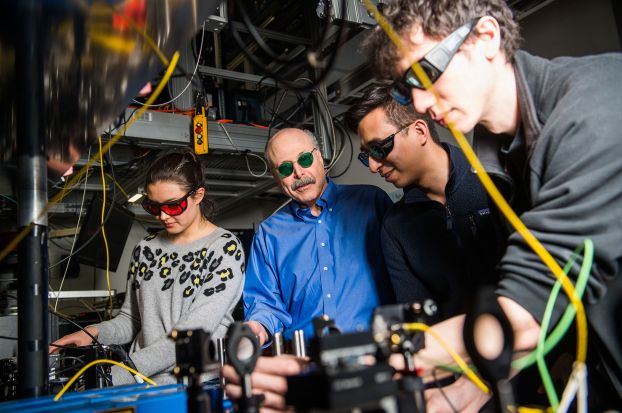Innovations in Graduate Education (IGE)
The Innovations in Graduate Education (IGE) program encourages the development and implementation of bold, new, and potentially transformative approaches to STEM graduate education training. The program seeks proposals that explore ways for graduate students in research-based master’s and doctoral degree programs to develop the skills, knowledge, and competencies needed to pursue a range of STEM careers.
The goals of the IGE Program are to:
- Generate the knowledge base needed to inform the development of bold, new, and potentially transformative approaches to graduate education as well as their implementation and adaptation.
- Catalyze rapid advances in STEM graduate education across STEM disciplines as well as those responsive to the needs of particular disciplinary and interdisciplinary STEM fields.
Innovation is needed at multiple levels and scales to address the wide range of issues facing STEM graduate education today. These range from the interpersonal relationships between faculty and students to the graduate program and the broader systemic institutional environment of policies and procedures. To address the wide range of issues and scales, the IGE program invites proposals for two types of projects.
- Track 1, Career Preparation Pilots focus on novel, pilot interventions in a single STEM program or at a single institution benefiting STEM students across multiple graduate programs. Track 1 will also support proposals examining the potential to extend a successful approach developed in one discipline or context to other disciplines or contexts.
- Track 2, Systemic Interventions and Policies research projects are expected to generate knowledge about the STEM graduate education system and outcomes of systemic intervention and policies. Track 2 projects may be implemented at different scales: within a field of study across multiple institutions and programs; across multiple fields of study within a single institution; or across multiple institutions and fields of study.
For more details including eligibility and award details view the latest solicitation on the NSF website.

We’re building a foundation for more faculty within our university to tap into the power of transdisciplinary research. But beyond that, we’re hoping to give students a chance to create sustainable solutions in the critical fields of renewable energy, water management, air quality and more. None of this growth would have been possible without IGE.
IGE by the numbers
Since 2015, the IGE program has invested in projects advancing graduate education.
States with funded IGE projects, including the District of Columbia and 11 EPSCoR* states.
US Institutions with IGE funding, including 27 non-R1 institutions and 17 Minority Serving Institutions.
Number of projects funded (105 awards).
*Established Program to Stimulate Competitive Research

